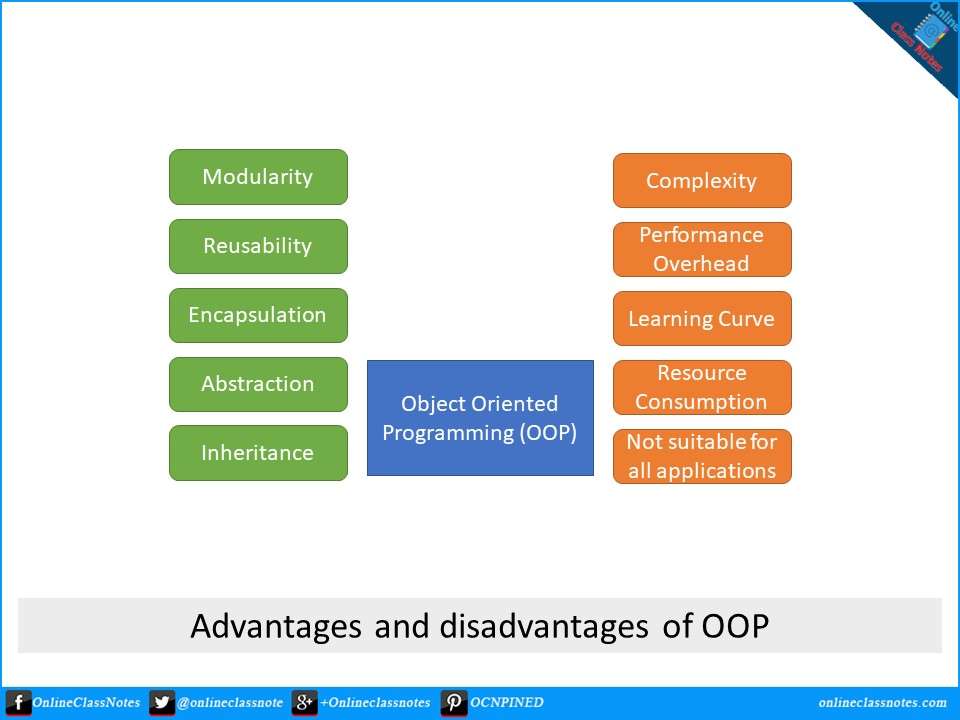Object-Oriented Programming (OOP)
Object-Oriented Programming, commonly known as OOP, is a programming paradigm that revolves around the concept of objects. In OOP, software is designed and structured by representing real-world entities, like objects, with attributes (data) and behaviors (methods). OOP has many advantages over Procedural or Procedure Oriented programming (POP).
Read More:
- What are the key principles and practices of object-oriented programming (OOP)?
- What are the basic features of OOP (Object Oriented Programming)?
Advantages of Object-Oriented Programming (OOP)
- Modularity: OOP promotes modularity, where code is divided into smaller, manageable parts called objects. This makes it easier to understand and maintain complex systems.
- Reusability: Objects and classes can be reused in different parts of the program or in other programs, saving development time and effort.
- Encapsulation: OOP allows encapsulation, where data and methods that operate on data are bundled together. This protects data integrity and ensures that data is accessed only through defined methods.
- Abstraction: Abstraction hides complex implementation details and provides a simplified view of objects. This simplifies problem-solving and makes code more understandable.
- Inheritance: Inheritance allows the creation of new classes by inheriting attributes and behaviors from existing classes. It promotes code reuse and supports the concept of a “base class.”

Disadvantages of Object-Oriented Programming (OOP)
- Complexity: OOP can introduce complexity, especially in large systems. Managing relationships between objects and classes can become challenging.
- Performance Overhead: OOP languages often have some performance overhead due to the use of objects and dynamic dispatch. In certain scenarios, this can impact execution speed.
- Learning Curve: Learning OOP concepts and principles can be challenging for beginners. It may take time to grasp concepts like polymorphism and inheritance.
- Resource Consumption: Objects consume memory, and in situations with many objects, this can lead to higher memory usage compared to other programming paradigms.
- Not Suitable for All Applications: While OOP is effective for many types of applications, it may not be the best choice for all. For certain low-level or performance-critical applications, other paradigms like procedural programming or functional programming may be more suitable.
Object-oriented programming brings advantages like modularity, reusability, and encapsulation, but it can also introduce complexity and performance overhead. Whether to use OOP or another programming paradigm depends on the specific requirements and constraints of the software development project.